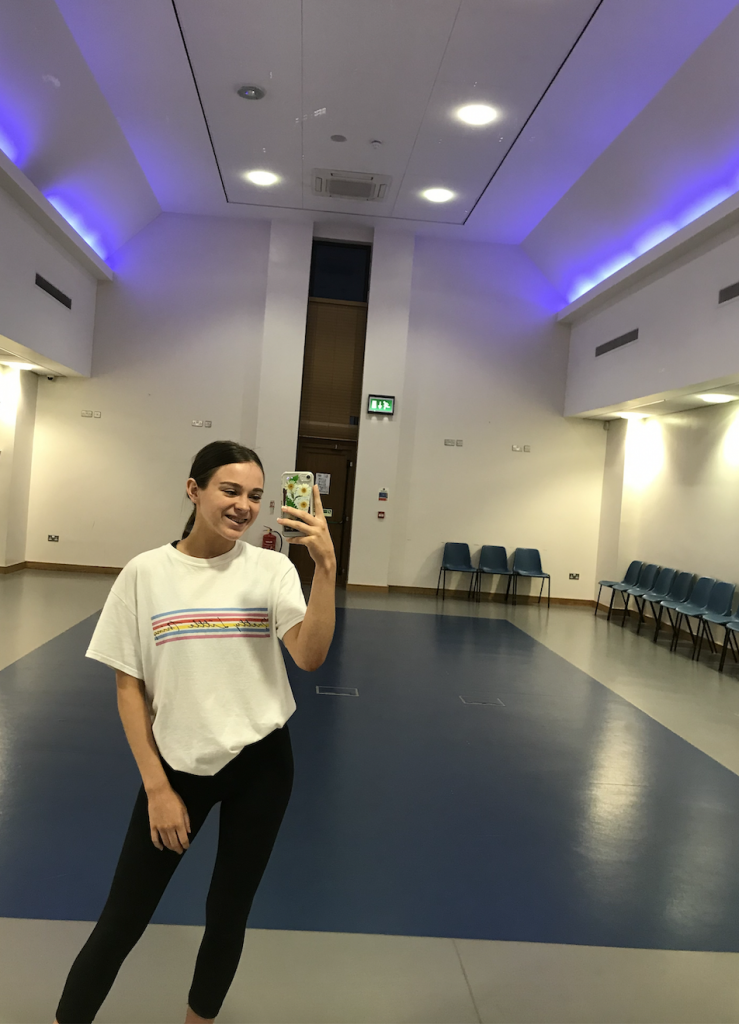“We’re All Made Of Stars”.

“You can be anything you wanna be, you can go anywhere you wanna see. A little hard work and you can do it, faith will get you through it, so many possibilities”. – Finding Neverland, Musical (Barlow and Kennedy, 2014).
Choosing work placement as a module in my final year of university has been, by far, one of the easiest decisions I have made as a music undergraduate student at Queen’s University Belfast. I mean, who wouldn’t choose to develop their skills and work with other creatives in the music scene if given the opportunity? And the fact we could arrange our own placement in whatever music-related field we felt most drawn too … I couldn’t submit my application choice for the module any faster!
Selecting to undertake my work placement with a singing teacher and agreeing to co-run musical theatre classes, I expected to learn from my placement supervisor. Geared up and ready to go (yet still hesitant and anxious I may add), I anticipated the life of a new music teacher and the new skills I hoped to learn.
This blog will explore and reflect upon what I aim to achieve and what I have already accomplished and learnt throughout my time on work placement using the model below.
Boud et al’s Model (1985) – Boud Model of Reflection

Taken from a university lecture powerpoint which references pg. 63 of Bogg and Challis’ 2013 resource.
(Lugea and McGinnis, 2021)
Developing my knowledge and understanding of the voice and how to effectively communicate its use for singing in a fun and nurturing environment – was – and still very much is – my main priority for the year. Learning how to communicate with children on a level that they can comprehend with activities that hold their attention is the first thing that I learnt from my placement supervisor. From vocal warmups that aren’t too complicated for the kids to follow, to picking repertoire that is not only an appropriate skill level but also incorporates ‘age-friendly’ words and subject content, I have been learning valuable knowledge from my first day.
The musical theatre classes are split into two age groups:6 to 10 years old and 11 to 14 years old. This means twice the amount of prep work and twice the amount of material needed! The upside? It’s easier to hold the attention of a smaller age bracket, plus, I am improving my organisational and time management skills. Sorting through potential songs for both age groups has expanded my knowledge on musicals and their repertoire as well as providing me with a good indication of what songs work well for individual and group exams. My placement supervisor also shared a great London College Music (LCM) resource with me which helps guide teachers when looking for songs and their suggested difficulty level for vocal examinations. (Music Theatre Syllabus, 2018)
In all honesty, the thought of teaching and being around children filled me with anxiety before beginning placement. Being a slight perfectionist and a major germaphobe, the idea of out of tune singing, limited understanding of pitch and fourteen little kids, running around and breathing over me did not sit too comfortably within. Especially as we continue to navigate life coming out of a worldwide lockdown thanks to a highly infectious and deadly airborne virus.

Covid-19 regulations have meant that my placement supervisor and I had to plan in advance the potential movement of the children, navigating the space we have to work in, to the best of our ability. This is to keep both ourselves and our pupils safe. Whilst the kids are allowed to mingle with each other and get the opportunity to do so during drama workshops etc. when they are signing, they understand they must ‘stay away from their buddies’. In attempt to help them, we have spots on the floor, all 1 metre apart that the kids can sit or stand in. At the same time, they understand that there must be space kept between them and any ‘staff’ member too. An easy way in which to facilitate this is the layout of our floor space as seen in the image to the left. All kids stay inside the blue box whilst the adults can move freely around in the grey.
(Image: Myself at Donaghadee Community Centre, Sports Hall)
Whilst anticipating learning from my placement supervisor, one thing I could not predict, was how much I would learn from the children themselves. In the younger class, I began teaching our first song: “We’re All Made Of Stars” from the musical Finding Neverland. A song about hopes and dreams for the future, the children started excitingly sharing with me what they hoped to be when they are older. From vets to dancers and teachers, each child was filled with a sense of purpose and belonging in the class. They collectively expressed their love for the piece with parents commenting on their enthusiasm for practice throughout the week. A song that I had picked because of its simple tune had turned out to be one that resonated in the hearts of such small children, encouraging them to be brave and not put limitations on themselves.
So… after only a few months on the ‘job’, my experience with music and the gift it is to be able to share your passion with others, having them benefit from it, has been something I was not at all prepared for and am incredibly grateful for. With a rough indication that teaching might be one of my many half-thought-out plans for the future I decided to take a plunge into this placement to see if it suited me. Whilst I still have a long way to go, I am proud of how far I have come and the new skills I have gained. I’m glad I took the risk and had the confidence in myself to delve into an unknown environment, learning as I go along and can’t wait for the rest of the year!
By Anna McWatters
Bibliography
Barlow, G. and Kennedy, E. (2014). We’re All Made Of Stars. Cambridge, Massachusetts.
London College of Music Examinations. (2018). Music Theatre Syllabus. [online] Available at: <https://lcme.uwl.ac.uk/media/1601/music-theatre-syllabus-2019-2021.pdf> [Accessed 22 November 2021].
Lugea, J. and McGinnis, L. (2021). Reflective Practice: The Reflective Blogs.
A walk in the park
You May Also Like

Breaking into the Film Industry: What You Know or Who You Know?
24 November 2021
Facing Avoidance
26 November 2021
